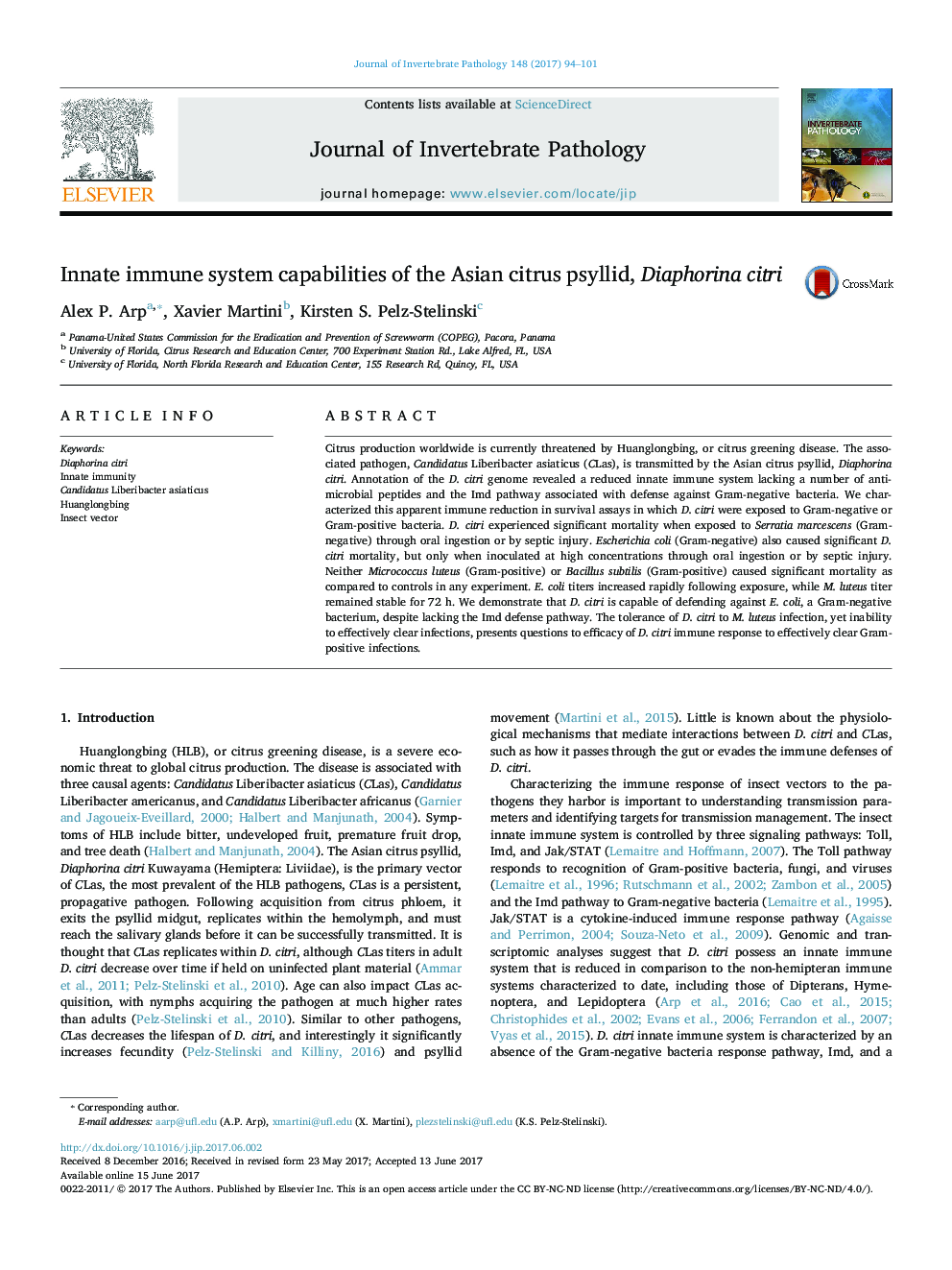| Article ID | Journal | Published Year | Pages | File Type |
|---|---|---|---|---|
| 5767028 | Journal of Invertebrate Pathology | 2017 | 8 Pages |
â¢Diaphorina citri is more susceptible infections of Gram-negative bacteria than Gram-positive bacteria.â¢Oral infections resulted in lower mortality rates than septic injury.â¢E. coli replicates rapidly in D. citri, M. luteus does not but also is not effectively removed.â¢Results correlate to an apparent absence of an Imd pathway in D. citri.
Citrus production worldwide is currently threatened by Huanglongbing, or citrus greening disease. The associated pathogen, Candidatus Liberibacter asiaticus (CLas), is transmitted by the Asian citrus psyllid, Diaphorina citri. Annotation of the D. citri genome revealed a reduced innate immune system lacking a number of antimicrobial peptides and the Imd pathway associated with defense against Gram-negative bacteria. We characterized this apparent immune reduction in survival assays in which D. citri were exposed to Gram-negative or Gram-positive bacteria. D. citri experienced significant mortality when exposed to Serratia marcescens (Gram-negative) through oral ingestion or by septic injury. Escherichia coli (Gram-negative) also caused significant D. citri mortality, but only when inoculated at high concentrations through oral ingestion or by septic injury. Neither Micrococcus luteus (Gram-positive) or Bacillus subtilis (Gram-positive) caused significant mortality as compared to controls in any experiment. E. coli titers increased rapidly following exposure, while M. luteus titer remained stable for 72 h. We demonstrate that D. citri is capable of defending against E. coli, a Gram-negative bacterium, despite lacking the Imd defense pathway. The tolerance of D. citri to M. luteus infection, yet inability to effectively clear infections, presents questions to efficacy of D. citri immune response to effectively clear Gram-positive infections.
Graphical abstractDownload high-res image (77KB)Download full-size image
